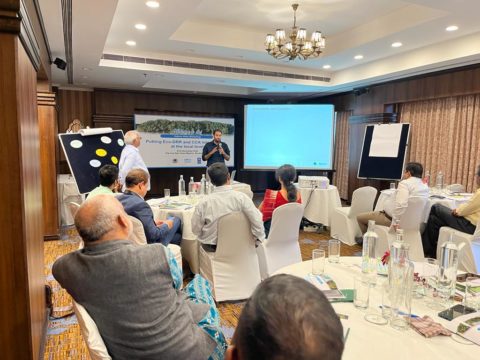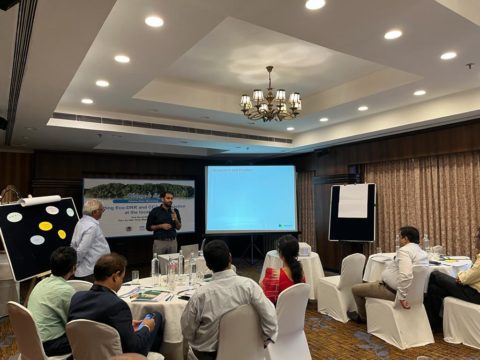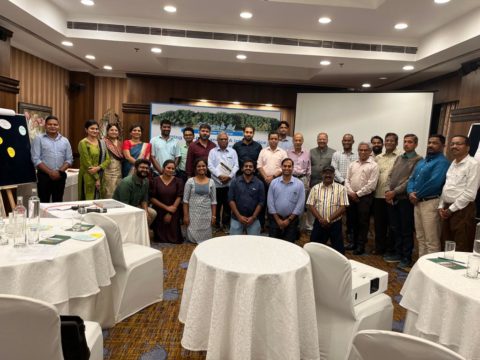
Workshop in Bhubaneswar to promote Eco-DRR in the developmental agenda of Panchayats and local self-governments
-
Capacity development
-
Community resilience
 Stakeholders concur on the need for community-based wetlands management and ecosystem-based approaches (EbA) for making communities and panchayats resilient towards climate and disaster risks.
Stakeholders concur on the need for community-based wetlands management and ecosystem-based approaches (EbA) for making communities and panchayats resilient towards climate and disaster risks.
Integrating EbA for climate risk management in social protection schemes such as the Mahatma Gandhi NREGS is critical for building community resilience towards climate change and extreme weather events.
The Ministry of Panchayati Raj is rolling out training on Sustainable Development Goals to all local self-governments across India. To further strengthen this endeavour, the United Nations Environment Programme (UNEP), the Kerala Institute of Local Administration (KILA), and the United Nations Development Programme (UNDP) in Odisha organized a workshop in Bhubaneswar on November 21, 2022, with line departments, knowledge & training institutions and civil society organizations to scope mainstreaming of Climate Change and Eco-DRR in the SDG training material of State Institute of Rural Development (SIRD), Odisha.

Mr. Dhruv Verma, Senior Technical Officer at Wetlands International South Asia, presented the learnings from the Eco-DRR project where community-based wetlands conservation and integrated risk management were used to reduce disaster risks in the Tampara wetland basin, Ganjam District of Odisha. The presentation concluded with sharing project outcomes and way forward on upscaling of Eco-DRR through (1) building sectoral convergence, (2) developing capacities of development professionals and line departments officials, (3) promoting research for evidence-building, and (4) evaluating the cost-benefit ratio of Eco-DRR for further uptake in social protection schemes. The participants appreciated the presentation and suggested replicating the model in other parts of Odisha with support from state government departments, knowledge institutions, and NGOs to make communities and development efforts of the government more inclusive and risk resilient.

